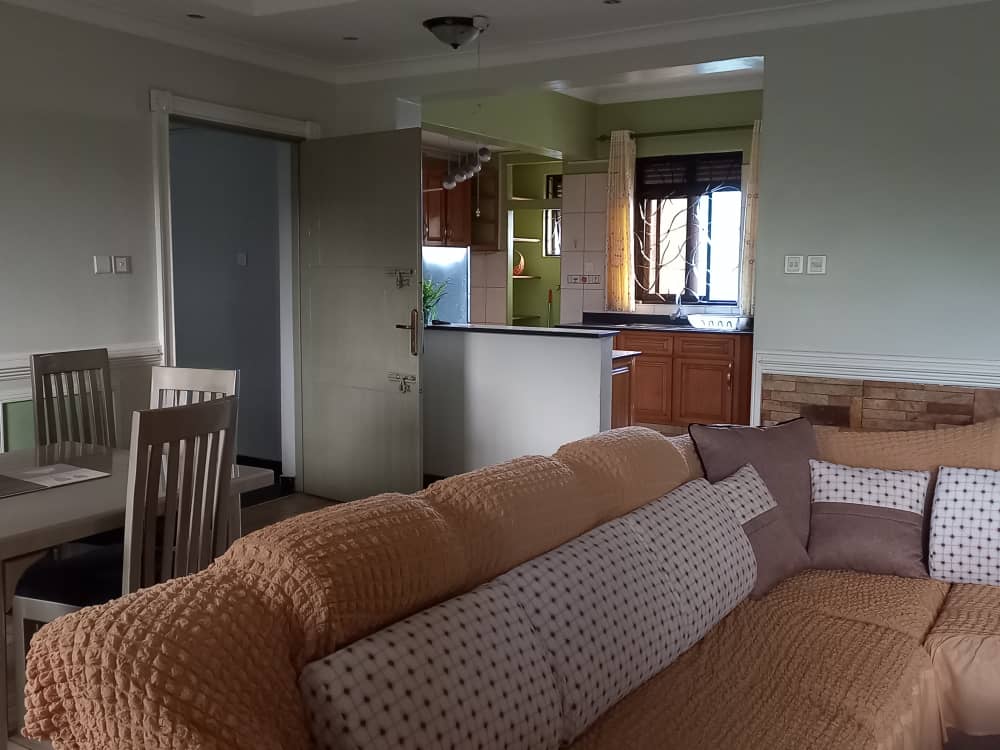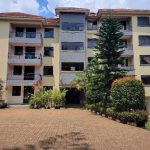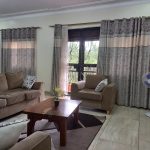Short Stay Accommodation in Makindye: Your Complete Guide.
You’ve just landed in Kampala for a three-week consulting project. Your company’s put you up in a decent hotel for the first few nights, but you’re already feeling cramped. The breakfast buffet’s getting repetitive, you’re paying premium rates for laundry, and there’s nowhere to properly spread out your work documents without sitting on the bed. Sound familiar?
This is exactly why more business travelers, medical tourists, and relocating families are choosing short stay accommodation in Makindye over traditional hotels. Whether you’re here for a week, a month, or somewhere in between, Makindye offers the perfect blend of accessibility, comfort, and authentic Kampala living. In this guide, you’ll discover why this historic neighborhood makes an ideal base, what makes it different from other Kampala areas, and how to find accommodation that actually feels like home. Let’s explore what makes Makindye one of Kampala’s most practical locations for flexible stays.
Why Makindye is Worth Considering for Your Kampala Stay.
Makindye isn’t trying to be the flashiest neighborhood in Kampala, and that’s precisely its strength. This established residential area sits southwest of the city center, offering something increasingly rare in modern Kampala: a sense of settled community alongside urban convenience. The neighborhood sprawls across gentle hills with a mix of older family homes, modern apartment complexes, and everything in between.
What makes Makindye particularly appealing for short stays is its strategic positioning. You’re roughly 10-15 minutes from the CBD during off-peak hours, though you’ll want to budget 30-40 minutes during the notorious morning rush. Entebbe International Airport is about 45 minutes away via the Northern Bypass, which means early morning flights don’t require a 4am wake-up call. The neighborhood sits comfortably between the more upscale areas of Muyenga and Buziga to the south and the busier commercial strips of Kabalagala to the north.
Unlike the hustle of downtown or the sometimes isolated feel of distant suburbs, Makindye strikes a practical middle ground. You’ve got residential quiet without being cut off from amenities. The main arteries—Ggaba Road and Salama Road—connect you to pretty much everywhere you need to go. There’s a healthy mix of locals and expats, which means you’ll find both authentic Ugandan eateries and the occasional pizza place that actually delivers.
The area particularly suits business travelers who need to access various parts of Kampala without committing to one specific district. Medical tourists coming to the nearby hospitals in Nsambya or heading to Kampala International Hospital find Makindye’s central-ish location ideal for recovery stays. Families appreciate the established schools and relatively calm streets, while digital nomads benefit from the growing number of cafes with reliable WiFi.

What Makes Makindye Different from Other Kampala Neighborhoods.
Drive through Makindye and you’ll notice something interesting: this neighborhood has layers. The older sections near the Makindye Hill area feature established homes with mature trees and a genuine neighborhood feel. Closer to Ggaba Road, you’ll find newer apartment blocks, shopping centers, and the kind of infrastructure that makes daily life easier.
One of Makindye’s defining features is Ggaba Road itself, a major artery that runs through the area connecting the city center to the southern suburbs and eventually to the lake. Yes, it gets congested, but it also means you’re never far from transport options. Boda-bodas congregate at multiple stages, and you’ll have no trouble catching a SafeBoda or Bolt during reasonable hours. Salama Road, running parallel, offers an alternative route and is home to several good local restaurants and services.
The neighborhood benefits from proximity to several significant institutions. Nsambya Hospital, one of Kampala’s most respected medical facilities, sits just north of the main Makindye area. This proximity has made the neighborhood popular with medical staff, which tends to keep security standards high and services reliable. You’ll also find Case Hospital and several private clinics within easy reach.
Shopping in Makindye is genuinely practical. The Victoria Mall provides your supermarket basics, while Ggaba Road is dotted with smaller shops, hardware stores, and local markets where prices reflect actual Kampala life rather than expat-inflated rates. For bigger shopping trips, the Naalya or Forest Mall are 20-30 minutes away depending on traffic.
Elevation matters in Kampala, and Makindye’s hilly terrain means some compounds enjoy impressive views while others sit in valley areas that can experience drainage challenges during heavy rains. The higher sections around Kizungu tend to catch nice breezes, while areas closer to the main roads trade some quiet for convenience. Power reliability in Makindye is generally decent, though like anywhere in Kampala, a backup generator or inverter system is standard equipment for furnished apartments.
Understanding Short-Stay Options in Makindye: What’s Actually Available.
When people search for short stay accommodation in Makindye, they’re usually trying to escape the limitations of hotels without the commitment of a year-long lease. The good news? Makindye’s rental market has adapted to meet exactly this demand, particularly over the past five years as the area’s reputation for convenience has grown.
You’ll find short-stay options ranging from compact studio apartments perfect for solo business travelers to spacious three-bedroom units that can comfortably house a relocating family. The majority of flexible accommodation sits in purpose-built apartment complexes with anywhere from six to thirty units. These complexes typically feature gated compounds with 24/7 security, reliable water supply, and the kind of backup power systems that mean you won’t lose work when the neighborhood experiences a power cut.
What distinguishes genuine short-stay apartments from standard rentals is the setup. Proper short-stay accommodation comes fully furnished with everything from kitchen equipment to bedding to WiFi routers. You should be able to arrive with your suitcase and start living immediately, not spend your first three days shopping for cooking pots and towels. Most operators in Makindye have figured this out, though quality varies significantly between properties.
The sweet spot for short stays in Makindye tends to be the two-week to three-month range. Stay less than a week and you might find hotels competitively priced once you factor in their included services. Stay longer than three months and you start getting better rates by negotiating directly for extended terms. But for that crucial middle period—the consulting contract, the medical treatment plus recovery, the house-hunting trip while your family settles in—furnished apartments in Makindye make both practical and financial sense.
Location within Makindye matters more than many first-time visitors realize. Properties along or near Ggaba Road offer maximum convenience but come with road noise and dust during dry season. Compounds tucked into side streets like those around Kibuli or Kizungu sacrifice some accessibility for quieter surroundings and often better air quality. There’s no universally “best” location; it depends on whether you prioritize peace and quiet or the ability to walk to shops and restaurants.
Furnished Apartments vs Hotels: What Works Better in Makindye.
Let’s talk honestly about the hotel versus apartment question because the answer genuinely depends on your situation. For a three-day Kampala visit, hotels make perfect sense. You’re paying for convenience, daily housekeeping, and the ability to walk away without thinking about dishes or trash. But once your stay extends beyond a week, the math and the lifestyle equation start shifting dramatically.
Consider the daily costs. A decent business hotel in or near Makindye runs $80-150 per night. A furnished two-bedroom apartment typically costs $800-1,200 monthly, which breaks down to roughly $27-40 per night. Even accounting for your own groceries and utilities, you’re saving considerable money on stays of two weeks or longer. For families or colleagues traveling together, the math becomes even more compelling since you’re splitting apartment costs that hotels would charge per room.
Beyond money, there’s the question of how you actually want to live. Hotels keep you in hospitality mode—everything’s provided but you’re essentially a guest in someone else’s space. Furnished apartments in Makindye let you establish your own rhythm.
Privacy and space matter more than people anticipate, especially on longer stays. In an apartment, your bedroom is separate from your living area, which means video calls don’t require perching on your bed with the bathroom visible behind you. If you’re traveling with family, children can maintain somewhat normal routines with separate sleeping spaces. Evening work doesn’t mean sitting in a hotel restaurant lobby because your room feels claustrophobic.
The apartment model particularly suits business travelers who need to host small meetings or entertain clients more casually. Inviting someone to your furnished flat for coffee and a working session feels more natural and professional than squeezing around a tiny hotel room desk. Medical tourists recovering from procedures appreciate the ability to rest comfortably without hotel staff constantly knocking on doors or hallway noise disrupting sleep.
That said, hotels aren’t without advantages. Daily housekeeping means you’re not managing your own cleaning schedule. Reception desks provide immediate assistance with local questions or booking needs. Hotel restaurants solve the “what’s for dinner” question when you’re too exhausted to cook. The key is matching accommodation type to your actual needs rather than defaulting to hotels because that’s what business travel has always meant.
Getting Around: Transportation and Access from Makindye.
Makindye’s transportation reality is straightforward: you’re well-connected but you need to be strategic about timing. The neighborhood sits along Ggaba Road, one of Kampala’s main southern corridors, which means transport options are abundant but traffic can be punishing during peak hours.
Boda-bodas are the default transportation for short hops around the neighborhood or quick trips into town. You’ll find stages at major junctions along Ggaba Road, near Victoria Mall, and scattered throughout residential areas. SafeBoda and Bolt work reliably in Makindye, and during mid-morning to mid-afternoon, you can usually get a ride within five to ten minutes. Apps are strongly recommended over random boda-bodas, both for safety and fare transparency.
For longer distances or when carrying luggage, Uber and Bolt offer car services that work well from Makindye. A trip to the CBD typically costs 15,000-25,000 UGX depending on time of day. Airport runs range from 50,000-70,000 UGX, though prices spike during morning and evening rushes. Many regular visitors develop relationships with specific drivers for more predictable pricing and reliability.
Traffic patterns follow predictable rhythms. Mornings from 7-9am see Ggaba Road clogged with inbound traffic toward the city center. If you’re heading into town during this window, budget at least 40 minutes for what might be a 15-minute trip at noon. Evenings reverse the pattern, with outbound congestion from 5-7pm. The absolute worst combination is Friday evening plus rain, which can turn a simple trip into an hour-long exercise in patience.
The area’s hilly terrain means walking is practical for short distances but requires some fitness. Strolling to Victoria Mall from nearby compounds is perfectly doable. Walking Ggaba Road’s main strip is technically possible but not particularly pleasant given traffic, limited sidewalks, and dust during dry season. Most residents walk within their immediate neighborhoods and use wheels for anything beyond about 800 meters.
During rainy season—roughly March to May and October to December—transportation gets more complicated. Minor roads can become muddy, and the general traffic chaos intensifies. This is when having accommodation in a compound directly accessible from a main tarmac road becomes genuinely valuable rather than just convenient.
Things to Do and See In and Around Makindye.
Living in Makindye for several weeks means you’ll want to know where to eat, shop, and decompress when you’re not working. The neighborhood isn’t Kampala’s entertainment epicenter, but it offers solid practical amenities and connects easily to more activity-rich areas.
For dining, you’ve got range. The Fang Fang restaurant near Victoria Mall serves reliable Chinese food that hits the spot when you’re craving something beyond Ugandan staples. Further along Ggaba Road, you’ll find local eateries serving proper matoke, posho, and groundnut sauce at prices that haven’t been adjusted for expat wallets. The Cayenne restaurant and bar offers a more upscale atmosphere for when you need to host a business dinner or just want tablecloths and wine glasses.
Coffee culture is slowly reaching Makindye, though it hasn’t exploded here like in Bugolobi or Kololo. The Endiro Coffee shop at Victoria Mall provides decent espresso and WiFi reliable enough for a few hours of remote work. For serious café working sessions, many Makindye residents head north to Kabalagala or Kisementi, both about 15-20 minutes away depending on traffic.
Victoria Mall anchors the area’s shopping, housing a Shoprite supermarket where you can find most international brands alongside local products. Prices reflect typical supermarket rates—not cheap but not gouging. For fruits, vegetables, and lower prices on basics, the local markets along Ggaba Road offer better value once you’re comfortable navigating the organized chaos of Kampala market culture.
Recreational options in Makindye itself are limited but nearby areas compensate. Several fitness centers dot the neighborhood, with Fitness Hub being one of the better-equipped options. The nearby Acacia Mall in Kisementi (15 minutes during off-peak) offers cinema, bowling, and proper shopping when you need a dose of air-conditioned normality. Munyonyo and the lake shore sit about 20 minutes south, offering weekend resort experiences at places like Speke Resort or more casual lakeside spots for grilled fish and relaxation.
For weekend explorations, Makindye’s position makes it easy to reach most of Kampala’s attractions. The Kabaka’s Palace sits practically in the neighborhood—a fascinating glimpse into Buganda Kingdom history if you’re interested in local culture. The Uganda Museum, Ndere Cultural Centre, and most city-center attractions are 20-30 minutes away. Day trips to Entebbe, the Equator marker, or even Jinja for white-water rafting are all feasible from this base.
Nightlife in Makindye itself trends quiet, which suits many short-stay visitors just fine. For livelier evening scenes, Kabalagala’s bars and clubs are close enough to reach easily but far enough that you’re not hearing bass lines at 2am. This balanced positioning—near the action but not submerged in it—defines much of Makindye’s appeal.
Practical Tips for Staying in Makindye.
Living in Makindye successfully requires understanding a few local realities that aren’t immediately obvious to newcomers. Start with security awareness: Makindye is generally safe, especially in gated compounds with guards, but standard urban precautions apply. Don’t walk around displaying expensive electronics openly. Avoid isolated areas after dark. Keep copies of important documents separate from originals. Most furnished apartment complexes maintain visitor logs and controlled access, which provides reasonable security without feeling oppressive.
Water supply varies by compound. Many buildings have overhead tanks that store municipal water plus backup from private wells. Ask about water reliability when viewing apartments—24/7 running water isn’t guaranteed everywhere, though most modern complexes have solved this issue. Similarly, power cuts remain a Kampala reality. Proper furnished accommodation should include some backup system, whether a full generator, inverter with batteries, or at minimum enough backup to keep lights and phone charging functional.
Internet deserves special attention if you’re working remotely. Most apartments include WiFi, but bandwidth quality varies dramatically. MTN and Airtel fiber connections work well when properly installed. If your accommodation’s internet seems slow, getting your own MTN or Airtel MiFi device is straightforward and usually worth the hassle for reliable connectivity. Test internet speeds before committing to longer stays when possible.
Shopping patterns matter for comfort. Supermarkets like Shoprite stock familiar brands but at premium prices. Smart residents mix supermarket shopping for specific items with local market purchases for produce, eggs, and staples. The Kisementi area offers Carrefour for international products, while Quality Hill supermarket provides good middle-ground options. Building relationships with local shops often yields better prices and the kind of casual credit arrangements that make last-minute needs easier.
Waste management follows a pay-for-service model in most compounds. Your apartment should include garbage collection in common fees, but verify this. Kampala’s recycling infrastructure is minimal—essentially everything goes into the same bags. The city has no regular municipal collection in most residential areas, so compounds contract private services. This works fine but explains why you shouldn’t just leave trash bags anywhere.
Rainy season brings specific challenges. Roads can flood quickly, creating temporary islands. Compounds with good drainage stay accessible, but some areas become difficult to navigate during heavy downpours. This is when the quality of your accommodation’s infrastructure really shows. Good compounds maintain drains, have elevated entries, and don’t turn into mud baths. Ask about rainy season access if you’re renting during wet months.
Building relationships with guards, compound managers, and neighbors makes a genuine difference in your experience. Ugandans generally appreciate friendly greetings and casual chat. Guards can help with everything from receiving deliveries to recommending nearby services to providing informal security awareness about the neighborhood. Learning basic Luganda greetings—”ki kati” (how are you) and “webale” (thank you)—goes surprisingly far in daily interactions.
What to Look for When Choosing Furnished Apartments in Makindye.
The gap between “furnished apartment” claims and actual reality can be significant in Kampala’s rental market. Walking into a properly set up short-stay apartment should feel like moving into someone’s well-maintained home, not like exploring a stage set with strategically placed furniture. Here’s what separates genuinely functional accommodation from disappointing surprises.
Start with power backup systems. This isn’t negotiable if you’re working remotely or need reliable refrigeration. Ask specifically what backup exists—full generator, inverter system with battery bank, or nothing. Generators provide comprehensive backup but can be noisy and slow to kick in. Quality inverter systems offer silent, instant backup for essential circuits. Either works, but “we’re working on getting backup” doesn’t count. Test this during viewing if possible.
Water reliability comes next. Purpose-built apartments usually solve this with large overhead tanks fed by both municipal supply and backup wells or boreholes. Ask when water cuts typically occur and how the backup system works. Verify that water pressure reaches the upper floors if you’re renting in a multi-story building. Nothing ruins your morning like discovering the shower produces a discouraging trickle while ground-floor units enjoy full pressure.
Kitchen equipment should be comprehensive, not symbolic. A furnished apartment should include refrigerator, stove/oven, pots, pans, dishes, silverware, and basic utensils. If you’re planning to actually cook, verify that the stove works (gas or electric both have pros and cons), the refrigerator maintains proper temperature, and there are enough practical items to prepare real meals rather than just boil water for instant noodles.
WiFi quality requires testing, not just provider names. Many apartments advertise “high-speed internet included” that turns out to be a single struggling connection shared across eight units. Ask about bandwidth, number of users on the connection, and whether you can upgrade at your own cost if needed. For remote work or regular video calls, this matters more than almost any other amenity.
Security arrangements deserve scrutiny. At minimum, expect a gated compound with 24/7 guards, visitor log systems, and controlled access. Better setups include CCTV coverage of common areas (though not intrusive bedroom or bathroom surveillance). Individual apartment security should include solid doors with good locks, window bars on ground floors, and safe parking if you’re bringing a vehicle.
The bedroom and living areas should genuinely support actual living, not just stage well for photos. Test mattress quality—Kampala’s furniture market includes some truly uncomfortable options. Check that wardrobes provide adequate storage. Verify that living room seating isn’t just decorative. Look for blackout curtains or blinds that actually block morning sun if you’re sensitive to early light. These details seem minor until you’re living with inadequate versions daily.
Flexibility in rental terms defines the difference between accommodation that works for short stays versus traditional long-term leases adapted poorly. Look for clear policies on minimum stay (one week? one month?), deposit requirements (should be reasonable for short terms), payment schedules (monthly in advance is standard), and what happens if you need to extend or cut short your stay. Professional short-stay operators have figured out these policies; amateur landlords often haven’t.
Maintenance and support systems matter more than people anticipate. Who do you call when the hot water fails at 7pm? How quickly do repairs get handled? Is there an emergency contact number? Proper short-stay accommodation includes management that actually responds to issues, not a landlord who promises to “check it next week.” This differentiates professional operations like Palatine Apartments from individual landlords casually renting furnished spaces.
Cleanliness standards upon move-in reveal management quality. The apartment should be professionally cleaned, not just “swept out.” Linens should be fresh, bathroom spotless, kitchen sanitized. If the move-in condition is marginal, expect maintenance and support to follow similar patterns. Good operators understand that initial impressions set the tone for the entire stay.
Making Makindye Your Kampala Base.
After exploring the practicalities, the real question becomes personal: does Makindye fit your specific situation? For business travelers balancing accessibility with reasonable costs, the neighborhood offers genuine value. You’re close enough to reach meetings across Kampala without impossible commutes, but you’re not paying premium rates for prestige addresses. The mix of local life and expat presence means you’re getting authentic Kampala experience while maintaining access to familiar comforts.
Medical tourists find Makindye’s proximity to quality healthcare facilities combined with quiet residential areas ideal for recovery periods. The neighborhood feels settled and calm without being isolated, which matters when you need rest but also want reassurance that services and support are nearby. Families relocating to Kampala often use short stay accommodation in Makindye as their landing zone while house-hunting, appreciating the established schools, family-friendly atmosphere, and practical amenities that make temporary living manageable with children.
The challenges are worth acknowledging honestly. Traffic can be frustrating during peak hours. The neighborhood isn’t walking-friendly in the Western sense of strolling everywhere comfortably. Entertainment options within immediate walking distance are limited. But these trade-offs deliver the benefits that make Makindye work: lower costs than prestige areas, genuine residential character, strategic positioning, and the kind of established infrastructure that means daily life actually functions smoothly.
Your Kampala experience will be significantly shaped by where you choose to base yourself. Makindye won’t give you the glamorous social scene of Kololo or the upscale polish of Muyenga’s highest hills. What it offers instead is practical, comfortable, well-located accommodation at reasonable prices with enough local character to feel like you’re actually in Kampala rather than some sanitized expat bubble.
Whether you’re in Kampala for a business contract, medical care, family relocation, or extended exploration, finding the right short stay accommodation makes the difference between merely managing and actually thriving during your stay. Makindye offers the kind of comfortable, convenient base that lets you focus on why you came to Kampala rather than constantly wrestling with where you’re staying.
At Palatine Apartments Uganda, we’ve helped dozens of business travelers, medical tourists, and relocating families find furnished apartments in Makindye and across Kampala that genuinely work for their specific needs. Our short-stay accommodation comes fully equipped with reliable amenities, flexible terms from a few days to several months, and the kind of responsive local support that makes real difference when you’re settling into an unfamiliar city. If you’d like to explore what’s available in Makindye or discuss your specific requirements, we’re here to help make your Kampala stay as smooth and comfortable as possible.


